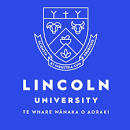Explore By
 Exams
Exams
 Countries
Countries
 Expenses
Expenses
 Universities
Universities
New Zealand, having positioned second on the 2019 Global Peace Index, is unquestionably the safest place to study. It boasts the ideal balance of possibilities, culture, economy, and climate for an Indian student to thrive, with its universities well regarded worldwide and a responsive education system. Its pristine scenery will make your trip worthwhile.
There is more to New Zealand than its magnificent vistas, although we are all cognizant of its beauty. It is quickly becoming one of the top choices for Indian students looking to study abroad.
New Zealand has a lot to offer, including a world-class education system, credentials recognized internationally, numerous research possibilities, and an unmatched quality of life.
You can count on a warm, friendly community and a first-rate international student support system while you are a student here. Here are a few of the main arguments in favor of continuing your study in New Zealand.
In accordance with the Global Peace Index 2018, which measures the political stability and social tolerance of the Kiwi democracy, New Zealand is ranked second.
The great multicultural atmosphere that New Zealand offers blends seamlessly with the country's active outdoor lifestyle. New Zealand exudes wanderlust with its abundance of diverse natural scenery, including rolling green hills, golden sand beaches, snow-capped mountains, volcanic volcanoes, and lush rainforests.
Every person who lives here has the opportunity to develop while experiencing both the region's rich cultural diversity and its natural beauty.
All eight of New Zealand's universities consistently obtain optimal positions in the QS World Rankings and Times Higher Education Rankings, and degrees earned at any one of these institutions are recognized worldwide, providing access to opportunities everywhere.
The New Zealand Qualifications Authority (NZQA) also ensures that institutions are authorized to accept international students and adhere to the requirements for qualifications.
Due to the strong emphasis placed by New Zealand on research-based instruction, you will learn how to deal with circumstances in an organized and systematic way.
At different levels, you'll learn how to operate individually and with a team. You will also be encouraged to ask questions, think critically, and gain from student-teacher interaction while you are a student here.
Additionally, you'll put the ideas you've learned in class into practice and devise several ways of problem-solving. You would have more benefits as a PhD student in addition to the numerous research possibilities. Since you can work full-time while pursuing a degree, you will be able to pay the same tuition as residents.
The admission process differs from college to college, but the following documents remain/general requirements remain staple for admission to higher education in Canada.
Choosing the right intake for you can be a little complicated. When making a choice, take into account elements such as the program's accessibility, your academic performance, admission exam results, acceptance rates, employment prospects, and degree of program preparedness.
While most Indian students favor the July intake, several programs also benefit from the February intake. If you don't yet have your score cards, we advise against rushing and instead applying for the following intake
Proof of English proficiency (TOEFL/IELTS)
GMAT/GRE for postgraduate programs
Letters of recommendation
Statement of purpose
Academic transcripts
Copy of a valid passport
Get help with the admission process from experts
Talk to our CounsellorsThe University of Auckland retained its position as the top university in New Zealand for 2021, surpassing seven other institutions to take the 81st place globally.
The QS World University Rankings 2021, which were just released, place the top universities in the world according to six main metrics: international faculty, international students, international faculty, faculty-student ratio, and citations per faculty.
The University of Otago, Victoria University of Wellington, University of Canterbury, and Massey University are some of the universities in New Zealand which hold positions in the Top #300 Universities in accordance with the Global ranking.

University of Auckland
Auckland, Auckland
Know More

University of Canterbury
Christchurch, Southland
Know More

Lincoln University
Lincoln, Canterbury
Know More
The most quickly developing study abroad location is New Zealand. When Indian students choose to study abroad, they frequently choose New Zealand for their courses.
Numerous students from the biggest cities in India have studied in New Zealand over the years. Mumbai is one among them. Aspiring students from Mumbai, India's thriving "city of dreams," are increasingly choosing to attend colleges in New Zealand. Over other nations, New Zealand is a popular study abroad location for students. The causes of the same are several.
New Zealand has a strong educational system that is similar to the UK's educational system, its degrees are internationally recognized, students can work part-time during the school year and full-time during breaks, and it provides a wide range of employment opportunities in the engineering, management, and business fields, among other fields. Studying there is also much more affordable in terms of tuition fees and housing.
Finance for Studying in New Zealand
Level of Education | Average Cost Per Year (in NZ$) |
Undergraduate Degree | $20,500 - $25,000 annually |
Graduate Degree | $19,000 - $29,000 annually |
Doctoral Degree | $6,500 - $9,000 annually |
Living Expense
You must set aside some cash for emergencies, social engagements, and grocery shopping. It is vital to keep track of your spending when you are a student living abroad to prevent overspending. A university student budget in New Zealand ranges between NZ$ 13,000 and NZ$ 16,000 each academic year, taking into account various prices and living expenses (indicative). When planning your budget, keep in mind the following typical expenditures:
Expenses | Weekly Average Cost in NZ$ |
Rent | $400 to $530 |
Food and Groceries | $136.50 |
Transportation | $79.50 |
Entertainment | $64.20 |
Recommended Blogs
If you plan beforehand, you can apply for a variety of scholarships offered by Kiwi universities and colleges before deadlines, making it cheaper to study in New Zealand.
These financial subsidies, available to deserving international students to assist them in funding their studies, might be partially or entirely compensated based on the requirements, course, and institution.
The New Zealand government, as well as several private and public organizations, also give a large number of scholarships and bursaries. Check the requirements and the deadline for applications very carefully before submitting an application for any of these scholarships.
Given below are the scholarships one can apply being an Indian:
New Zealand International Doctoral Research Scholarships (NZIDRS)
New Zealand Commonwealth Scholarships
New Zealand Excellence Awards (NZEA)
NZ-GRADS New Zealand Global Research Alliance Doctoral Scholarship
SEG Scholarship
Palmerston North City Mayor's Goodwill Ambassador Scholarship
Recommended Blogs
When it comes to housing throughout your studies, you have four basic choices. Your alternatives include living in a hostel or residence halls, private boarding, homestay, or independent housing, depending on your needs and your budget.
It's crucial to consider your budget, any additional expenses you may have—such as a rental bond, meal charges, or utility bills—access to public transportation, the distance to your school, and any other services or facilities you might want to be close to when looking for the ideal home for you.
On-campus accommodation
For foreign students arriving in New Zealand for the first time, traditional resident halls within institutions are a popular choice. If a student wants to live on campus, they must apply well in advance. Living on campus puts you conveniently close to everything you need. Sometimes the package also includes meals, computer access, laundry, and cleaning services. Furthermore, your apartment is a part of a larger university community in case you require any other kind of support.
Cost: NZ$100 to NZ$700 per week.
Off-campus Accommodation
Homestay: Considered one of the safest types of accommodation, where students will be leaving with New Zealand families right in their home.
Valuable cultural experience
A fully furnished room
Properly arranged meals
NZ$110 to NZ$370 per week.
Private Rentals: Type of accommodation not connected to the university. Many students in New Zealand choose to share the cost of a rental property with several housemates.
Offers a lot more independence than other accommodations.
Will help students to become self-sufficient and responsible
Students would have to look after household chores like cleaning, groceries, paying bills etc.
NZ$ 300 to NZ$ 600 per week
Procedure
All Indian students are given the option by the New Zealand government to study there, but you must first apply for a student visa. The type of education you plan to undertake and the length of your stay in New Zealand will determine the type of visa you require.
Here is a list of the several sorts of student visas you can apply for if you are over 18 and intend to study in New Zealand for a period of time longer than six months:
Fee Paying Student Visa - being able to work part-time while studying full-time for up to four years
Exchange Student Visa - up to four years of full-time study for a recognized student exchange programme.
Foreign Government Supported Student Visa - Utilize a loan or scholarship from a foreign government to study full-time for up to four years.
Pathway Student Visa - On a single student visa, you can take three courses that last for up to five years while also being eligible to work part-time
Practice with our AI-based Video Interview Analyzer to ace your Visa interview
Get AccessStudents with in-demand skills and those who want to stay in New Zealand for a long time can apply for a Skilled Migrant visa, which will allow them to work and live there permanently.
This is in addition to the internships that students can join while pursuing their educational courses in New Zealand.
New Zealand has a considerable demand for graduates, particularly in the engineering, agricultural, farming, information, and communications technology, and health sectors.
Recommended Blogs
The official Study in Zealand website estimates that international undergraduate students will pay between NZ$22,000 and 32,000 (about $14,900 and 21,700) per year, with higher costs for courses like medicine and veterinary science. Three years on average are needed to complete a bachelor's degree.
The following basic criteria must be met in order to apply for a PR Visa in New Zealand:
Age is under 55 years old
Excellent mastery of the English language and fluency
Good physical and moral health
Received a job offer (in case you have applied for a sponsored work visa)
Being able to demonstrate your intention to stay in the country
In New Zealand, one may apply for a PR visa under a number of categories, namely the categories for skilled immigrants, partners, and business and investment.
One of the top destinations for Indian students wishing to study abroad is quickly becoming New Zealand. One can opt for the following courses to study in New Zealand:
Animation.
Engineering.
IT and Computer Science.
Agriculture.
Medicine.
Business Studies.
Engineering Forestry.
Hospitality.
TOEFL
English language proficiency test
PTE
The computer-based English test
SAT
Standardized test administered by College Board
GRE
Admission test for graduates
GMAT
Test for Business and Management Programs
Confused which university to choose?
Use our recommendation engine to analyze your profile and recommend the most desirable programs that fit you.
Get Recommendation